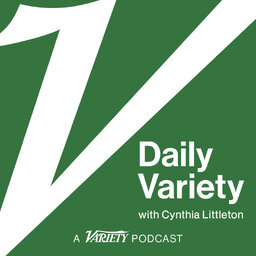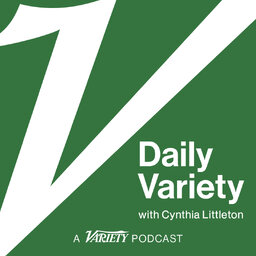Latin Music Goes Global With Amazon’s Rocío Guerrero
Thanks in large part to top seller Bad Bunny, Latin music saw
explosive growth in 2022, exceeding $1 billion in U.S. revenues for
the first time, and up nearly 25% from 2021. Amazon Music is on a
similar path as it relates to Latin music and its many subgenres.
Leading the charge: Rocío Guerrero, a veteran of Spotify and Warner
Music Group whose role as Amazon’s Global Head of Latin Music runs
across multiple digital and physical offerings at the retail giant.
In 1 playlist(s)
Variety's Strictly Business
Industry leaders converse about business deals, strategy and the future of media and entertainment o…Social links
Follow podcast
Recent clips

Daily Variety -- Bill Lawrence on the Relaunch of 'Scrubs' and Rise of 'Rooster'
15:20

Daily Variety -- Box Office Monday: 'GOAT' Unmoors 'Wuthering Heights' From No. 1; Revisiting Overlooked Black TV Gems
16:43

Ted Sarandos Fights to Seal Warner Bros. Deal: Netflix Co-CEO on Battling ‘Misinformation,’ the Future of HBO Max and His ‘Blood Oath’ for Theatrical Exhibition
33:18
 Variety's Strictly Business
Variety's Strictly Business